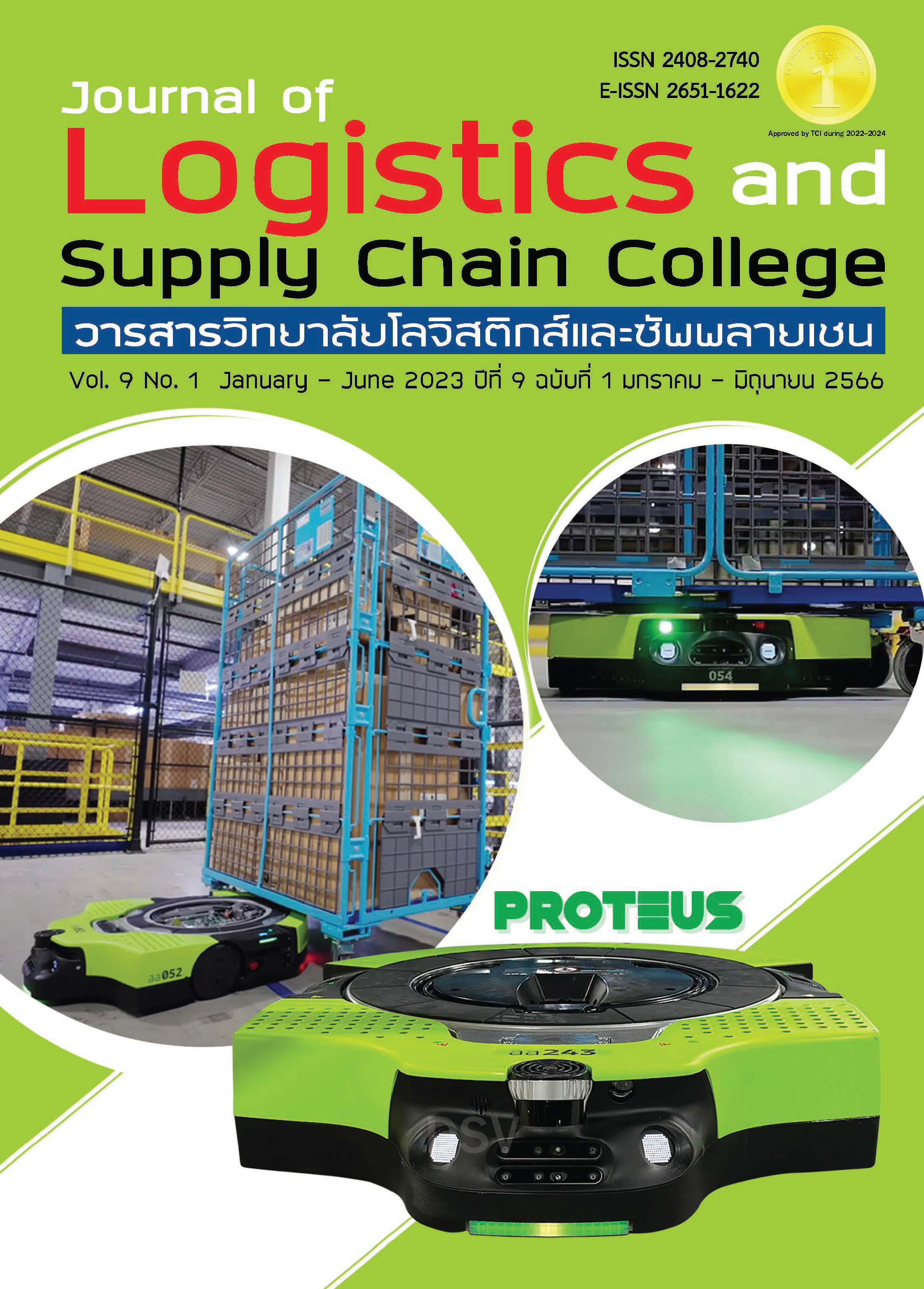Human Resource Skills for Business Transformation to Support the Digital Transformation of the Organization
Keywords:
Developing Human Resource Skills, Business Transformation, Digital TransformationAbstract
The objectives of this research are to 1) investigate the digital transformation of business organizations. 2) Study the human resource skills required to provide recommendations for executives of business organizations. This research employs mixed method. The population is a business company in the Bangkok area. The questionnaires sample size is eight industries (28 companies, 84 people), and in-depth interviews with 28 key informants. The qualitative research tool used a semi-structured interview. The quantitative research tool used a questionnaire. Data collected were interviews conducted via telephone and face-to-face, the questionnaire distributed by printout and e-Mail together. Content analysis was use to analyze qualitative data descriptive statistics were used to analyze quantitative. The finding revealed that: there were seven major business transformations discovered, with the seventh change being the shift from single-company competition to network competition. It is the most important thing in the modern supply chain era for survival, and 2) human resource skills that business organizations need to use as they lead to new things, include using human resource skills which required eleven soft skills. The top three most important skills are adaptability, digital literacy, and complex problem solving. As a result, the recommendation for corporate executives is (1) old employees, skills need to be increased, improve skills (Upskill- Reskill) to a higher potential, and recheck the eleven soft skills, and which skills were still lacking, and (2) new employees recruited. There should be a job entrance examination, both written and interviewed. This ensures that new employees have the skills that the organization needs and reduces resignations, because employees are less likely to turn over information that may deteriorate the organization’s reputation.
References
กรรนภัทร กันแก้ว และพงศภัค ตรีรัตนเศรษฐ์. (2563). วิวัฒนาการการจัดการทรัพยากรมนุษย์เชิงกลยุทธ์. วารสารวิทยาการจัดการ มหาวิทยาลัยราชภัฎเชียงราย, 15(2), 92-116.
กรมสุขภาพจิต. (2559). Gen Y/Gen Me กลุ่มผู้กุมชะตาโลก. ค้นเมื่อ 12 มกราคม 2564. จาก: https://dmh.go.th/news/view.asp?id=1251.
จำเนียร จวงตระกูล. (2561). การพัฒนาทรัพยากรมนุษย์เพื่อนำประเทศไทยสู่ประเทศไทย 4.0. วารสารบริหารธุรกิจและสังคมศาสตร์ มหาวิทยาลัยรามคำแหง, 1(1), 1-19.
ดวงใจ จันทร์ดาแสง, เฉลิมชัย กิตติศักดิ์นาวี และนลินณัฐ ดีสวัสดิ์. (2561). แนวทางการพัฒนาองค์การผ่านการบริหารทรัพยากรมนุษย์เชิงกลยุทธ์ของสายสนับสนุนวิชาการเพื่อการรับการเป็นวิทยาลัยโลจิสติกส์และซัพพลายเชน จังหวัดนครปฐม. วารสารมหาวิทยาลัยศิลปากร, 38(4), 179-201.
ทองน้ำ วรมหัทธนกุล, กานต์จิรา ลิมศิริธง และบุรินทร์ สันติสาส์น. (2564). การเปลี่ยนแปลงทางดิจิทัลต่อการพัฒนารูปแบบธุรกิจธนาคารในประเทศไทย. วารสารมนุษยศาสตร์และสังคมศาสตร์ มหาวิทยาลัยธนบุรี, 16(2), 147-157.
ธนาคารแห่งประเทศไทย. (2565). ธุรกิจไทยปรับตัวอย่างไร ท่ามกลางกระแสการเปลี่ยนแปลงของโลก. ค้นเมื่อ 16 กุมภาพันธ์ 2565, จาก: https://www.bot.or.th/Thai/BOTMagazine/Pages/256301Conversation.aspx.
บริษัทแรบบิท แคร์ โบรคเกอร์ จำกัด. (2565). 11 Soft Skills ที่คนทำงานควรมีในปี 2022. ค้นเมื่อ 16 มกราคม 2565. จาก: https://rabbitcare.com/blog/others-category/partner/11-soft-skills.
บริษัทเซ็ทเทรดดอทคอม จำกัด. (2565). กลุ่ม/หมวดอุตสาหกรรม. ค้นเมื่อ 20 มกราคม 2565, จาก: https://classic.settrade.com/C13_MarketSummary.jsp?detail=INDUSTRY.
พวงชมพู โจนส์. (2561). สังคมผู้สูงอายุ : โอกาสและความท้าทายทางธุรกิจ. วารสารธุรกิจปริทัศน์, 10(1), 1-6.
มนัญณัฏฐ์ โภชนจันทร์. (2562). การทำงานร่วมกับผู้จัดการชาวญี่ปุ่น: บนการบริหารความขัดแย้งและความแตกต่างทางวัฒนธรรมในประเทศไทย. วารสารเซนต์จอห์น, 22(31), 175-191.
มนัญณัฏฐ์ โภชนจันทร์. (2560). ปรับแนวคิดการบริหารจัดการธุรกิจ SMEs ของไทย: เสริมทัพกำลังสร้างความพร้อมก่อนแจ้งเกิดและคงอยู่ในตลาด. วารสารวิชาการเซนต์จอห์น, 20(26), 156-172.
วรรณชัย ธุระแพง, พิทักษ์ ศิริวงศ์ และวรรณสิริ ธุระแพง. (2564). แนวทางการพัฒนาทรัพยากรมนุษย์ในการใช้ระบบคลังสินค้าอัตโนมัติ เพื่อเพิ่มความสามารถในการแข่งขันและความได้เปรียบด้านต้นทุน: กรณีศึกษาธุรกิจแปรรูปอาหารในจังหวัดสมุทรสาคร. วารสารวิทยาลัยโลจิสติกส์และซัพพลายเชน, 7(2), 81-96.
อดิลักษณ์ พุ่มอิ่ม. (2564). การพัฒนารูปแบบความสัมพันธ์เชิงสาเหตุของปัจจัยด้านงาน ความเครียดในการทำงาน ที่มีอิทธิพลต่อประสิทธิภาพในการปฏิบัติงานของพนักงานในนิคมอุตสาหกรรมเกตเวย์ซิตี้. วารสารวิทยาลัยโลจิสติกส์และซัพพลายเชน, 7(2), 122-135.
Bahuguna, P.C., Kumari, P., & Srivastava. (2009). Changing face of human resource management:A strategic partner in business. Management Insight. 5(2), 96-109.
Best, J., & Kahn, J. V. (1993). Research in Fducation (7th ed.). Boston: Allyn and Bacon.
Eric Frick. (2019). Information Technology Essentials Volume 1: Introduction to Information Systems. USA: Eric Frick 2017.
Lin, Y., Wang, Y. & Yu, C. (2010). Investigating the drivers of the innovation in channel integration and supply chain performance: A strategy orientated perspective. Int. J. Production Economics, 127, 320–332.
Natpatsaya Setthachotsombut. (2020). Road Transportation Management Potentiality Enhancement for Linking Special Economic Zones and Border Trade Activities in Mukdahan Province, Thailand. International Journal of Supply Chain Management (IJSCM), 9(6), 1425-1432.
Natpatsaya Setthachotsombut & Gritsada Sua-iam. (2020). The Resilience Development for the Entrepreneurs Tourism Sector (RDETS) from the 2019 Coronavirus crisis in Thailand, African Journal of Hospitality, Tourism and Leisure, 9(2), 1-14.
Red Hat, Inc. (2022). What is digital transformation. Retrieved 15 January 2022, From: https://enterprisersproject.com/what-is-digital-transformation



